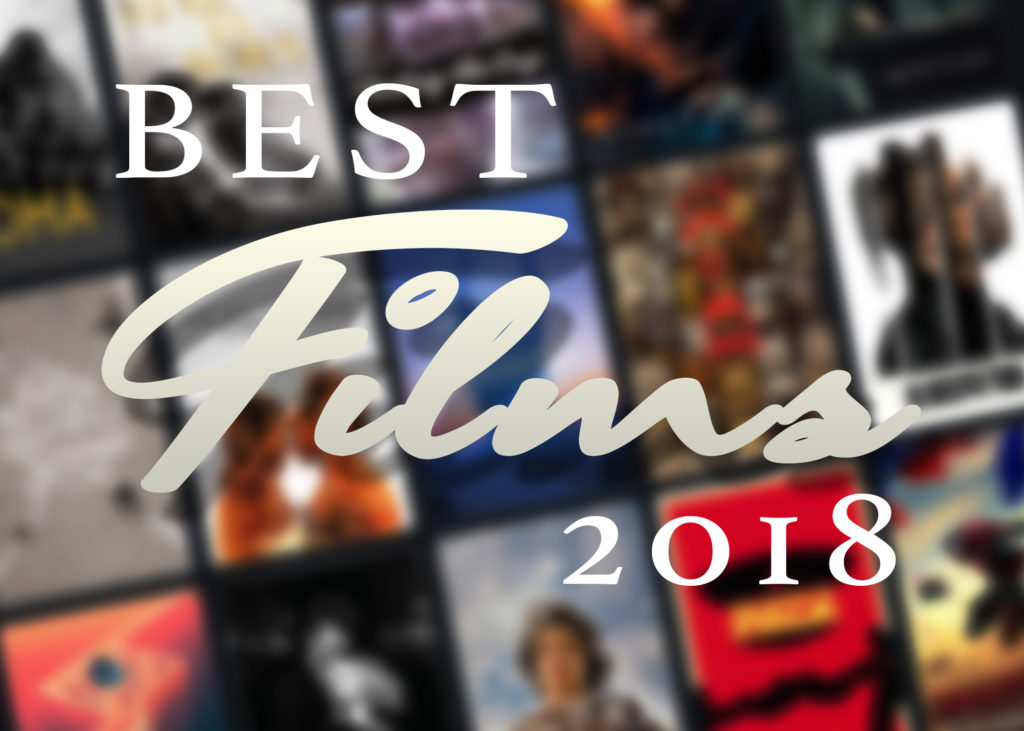
For the second year in a row, I present to you the best movies of the year…
The previous year, that is.
It’s hard to stay on top of all the movies that come out. And it’s hard to make it to the theater when you have a family, a job, and a thousand other things to do every day. What most of us end up doing is just waiting for it to come out on streaming. It’s easy, it’s convenient, and if you’re lucky, most of the movies will eventually be on a subscription service you already pay for. Netflix and Amazon have a growing list of exclusive content, which drives other services to compete. It’s easier than ever to find a movie you want to watch. You just have to be patient and wait it out. What that means, however, is that all those movies you really wanted to see in 2018…you end up seeing them in 2019.
That’s why I have this list! Maybe you’re like me, and you’re just now able to get to that new(ish) movie you wanted to see last year because it’s finally on Amazon Prime, or Hulu, or HBO, or wherever.
Now, in 2018 I made a concerted effort to catch up on all the movies over the last few years that I’d missed. I also wanted to see as many new movies as possible in the theater. Movie Pass was still a thing for most of the year, and it allowed me to see multiple movies a week for only $10 a month. I went to late movies by myself. Sometimes I’d squeeze in a movie at home after putting the kids to bed, then go straight to the theater to see another one. Looking back, I’m not sure how I did it, honestly. But it was a crazy year for me. I watched 171 movies. 328.7 total hours. That’s an average of 14.2 movies per month, or 3.3 movies per week. I wrote 144 movie reviews on Letterboxd (You can keep up with me on Letterboxd, if you want to see what I’m watching. It’s nowhere near the amount I watched in 2018).
Thanks to my absurd commitment to film-watching in 2018, I was able to see 62 movies from 2018. So I’d like to think I have a pretty good grasp on the Year in Film, and which films stood out from the rest. And now that many of those movies are popping up on streaming services near you, it’s as good a time as any to go back and check out the movies you might have missed.
Here are my top 10 favorite movies from 2018. There’s a difference between “best” and “favorite” that I won’t get into here. Put simply, these are the movies that I loved to watch. I’ve included snippets of my reviews too.
These are just 10 of the movies I really liked. There are many more. For a bigger list, check out my list of ALL 4-star movies from 2018.
10. Blindspotting
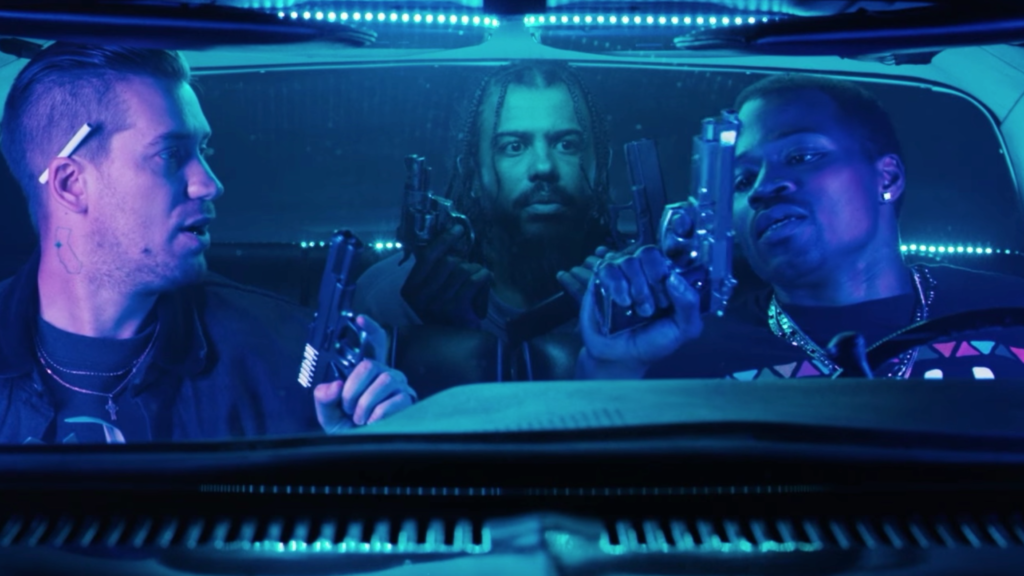
It’s rare for a movie to be both hilarious and also deeply, emotionally affecting. But Blindspotting hits those marks with equal measure. Actor/writer Daveed Diggs has written a script that crackles with wit and humor, and director Carlos Lopez Estrada moves us through this story, and through the city of Oakland, with blazing ferocity and ambition. It’s a joy to watch, really. Supremely entertaining while also sharply socio-politically conscious. Lead actors (and real lifelong friends) Daveed Diggs and Rafael Casal shine in their roles. You can tell that there’s actual history in their friendship and in the portrayal of their home town. It makes for an extremely engaging story, and it’s downright funny along the way. But there’s not just humor. There’s a deep well of pain and anger as these two men struggle to deal with the outside forces that control their lives, while trying to figure out how much they actually control.
How to watch: Cinemax, HBO (GO, NOW, On Demand)
9. Isle of Dogs
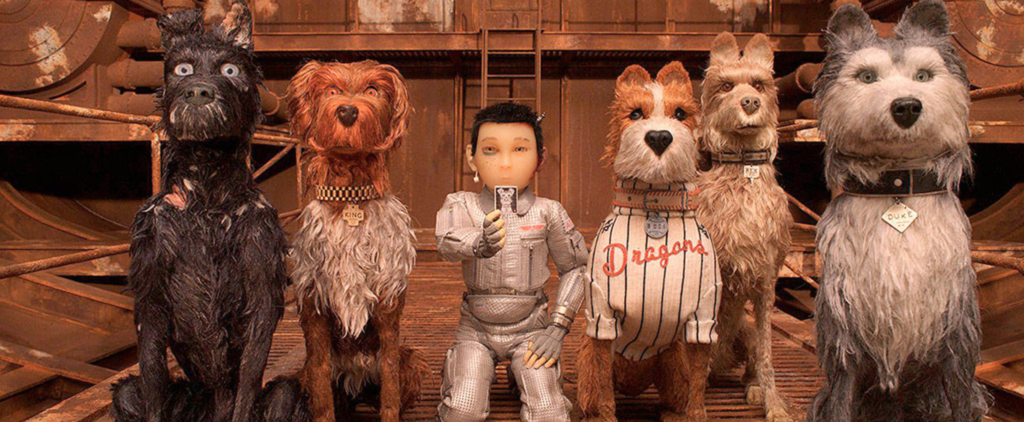
There are very few directors I trust enough to risk buying a movie I have not seen. Wes Anderson is one of those directors. Isle of Dogs was on sale for $10 bucks on Amazon recently. I clicked that Purchase button without even thinking. It’s not Wes Anderson’s best movie. But who expected it to be? I still thoroughly enjoyed it, and will undoubtedly watch this movie a few more times. It’s such a strange idea for a movie that I can’t help but kind of love it. There are scores of great actors doing great voice work on this film. I love Bryan Cranston as Chief, and Liev Schreiber is great as Spots (oh, and why did I not know that Liev Schreiber has been the Hard Knocks narrator for like 17 years??). Bill Murray, Edward Norton, Scarlett Johansson, Jeff Goldblum, Frances Mcdormand, F. Murray Abraham, Bob Balaban, Tilda Swinton, Greta Gerwig. All great. The dialogue and script is classic Wes – plenty of quotables and humor and every now and then a dash of unabashed earnestness. The technical artistry is insane. It’s actually kind of mind-blowing to think of all the work it took to put this movie together and make it look so sleek and, frankly, awesome.
How to watch: Cinemax/MAX GO
8. Burning
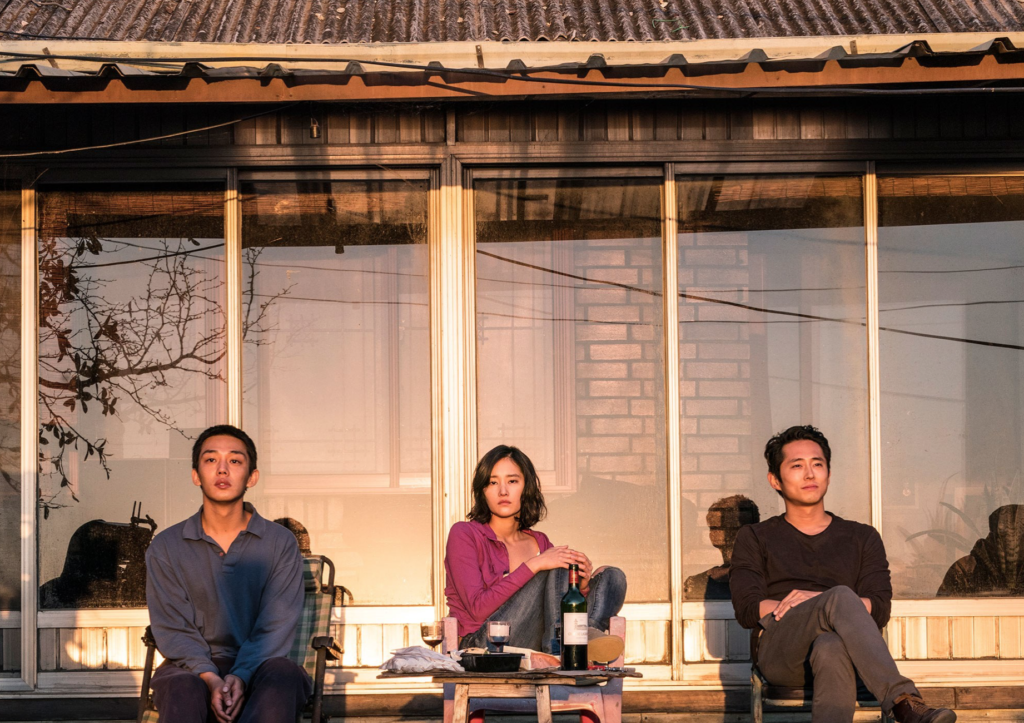
The film is a slow burn (pun entirely intended). But I felt pretty immediately captivated by the relationship between protagonist Jong-su and Hae-mi, and particularly the mysteriousness that Jeon Jong-seo brings to her portrayal of Hae-mi, the aloof but mesmerizing young woman who pulls Jong-su into her fractured, spontaneous world. By the time Hae-mi brings Ben (played by Walking Dead alum Steven Yeun) into the equation, it feels like a betrayal. And that solidifies our connection to Jong-su. This is his story, even though it seems like he would sometimes rather blend into the background of life. And we view this world, and the shifting dynamics between himself and others, through his perspective.
This is yet another film that has lingering effects. I keep thinking about it in the quiet spaces between activities and thoughts. I keep thinking about Hae-mi, and I keep feeling like Jong-su.
How to watch: Netflix, Hoopla
7. If Beale Street Could Talk
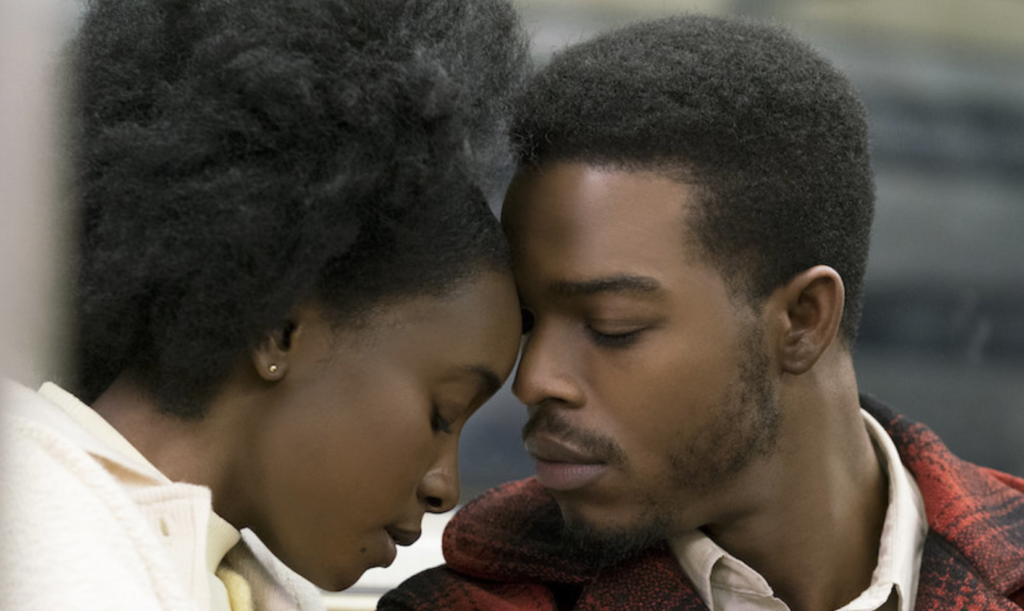
This film has lingered on the periphery of my day today, trailing behind me like a shadow. I’ll turn around and abruptly notice it there, indistinct but indisputable. This is just such a beautiful piece of filmmaking, based on a great novel by an iconic author, James Baldwin. For director Barry Jenkins, this is a perfect followup to Moonlight.
It has this mix of biting criticism and heart-rending sorrow that really draws you in and makes you care not only about the characters, but about the situation they’re stuck in. Jenkins has developed a knack for the head on portrait shot, where the characters look straight into the camera. It sometimes feels like their piercing eyes are hitting your soul and opening you up to things you don’t fully understand. There’s this psychology experiment where you stare into a stranger’s eyes for 4 minutes. And it’s supposed to boost your empathy for those that are different than you. That’s kind of what watching Beale Street is like.
How to watch: Hulu
6. The Ballad of Buster Scrugs
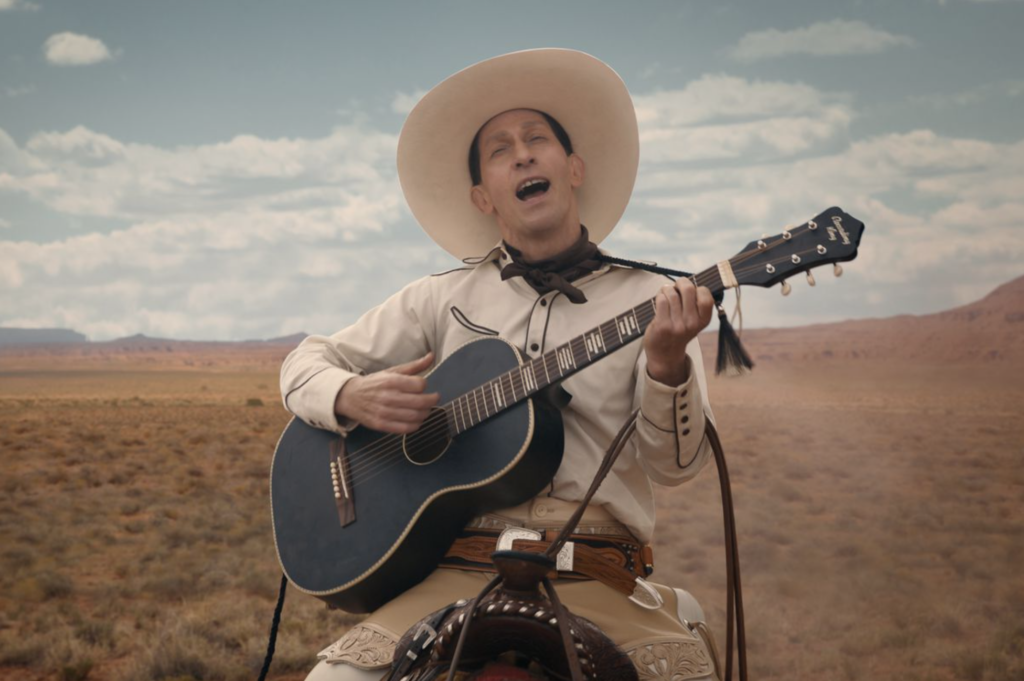
I don’t know why I thought I wouldn’t love this. The Ballad of Buster Scruggs is only the first of six short films featured in this anthology. Each short film stands on its own. Each has their strengths and weaknesses. And when watched consecutively, there is no particular cohesion that ties the stories together. But they still work so well when watched back to back. Or maybe the better way to say it is that there’s something to enjoy in each vignette, and you don’t want, or feel the need, to stop watching when one episode ends. I started watching this a little bit late, and expected to split up my viewing. But that’s not what happened. I just kept watching, late into the night.
Anthologies are strange. Sometimes they work, sometimes not. I wouldn’t say that this is something we’ll see a whole lot of in the future. Usually anthology films feature different directors that all contribute to one project (such as Paris, Je T’aime). But this was kind of a perfect little project for the Coen Brothers. Everything works here, even in the weakest of its stories. They’re able to get top tier talent, and the cinematography is splendid as always. They’re still at the top of their game with screenwriting – the verbal wit in episodes like Scruggs and Mortal Remains are just a joy to behold. The Coens have always operated with a balance of heartbreak and humor. Tragedy and comedy. And that was on full display here.
Here’s my ranking of the 6 episodes:
1. The Gal Who Got Rattled
2. The Ballad of Buster Scruggs
3. Near Algodones
4. All Gold Canyon
5. The Mortal Remains
6. Meal Ticket
How to watch: Netflix
5. A Quiet Place
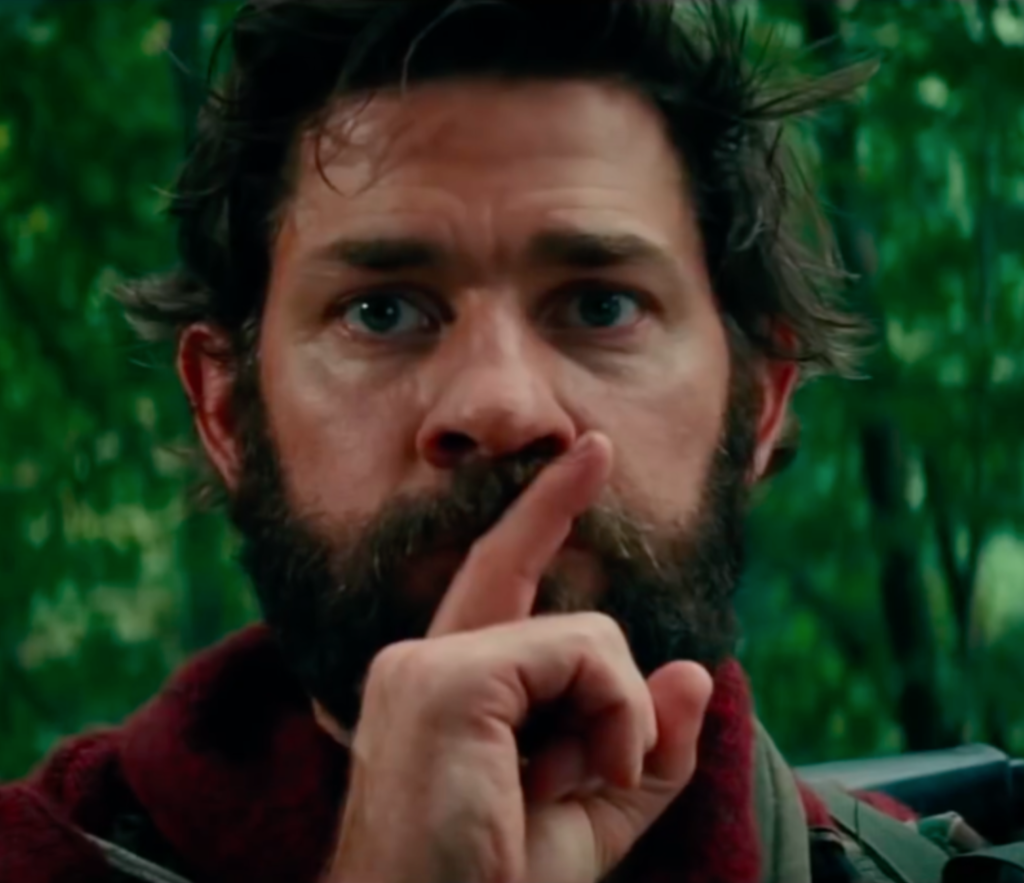
The only thing I didn’t like was the guy behind me with the Sour Patch bag, crinkling the whole damn time.
Look…This is great. It’s great. It’s even better the second time.
Maybe it has to do with me watching it with my wife, who has stressful dreams already, and just watching her reactions to everything, how totally into it she gets while also just hating every moment of it (she liked it).
If she makes it through an entire movie without falling asleep, you know it’s a good movie*.
*She also drank three cold brew coffees, which may or may not have been a factor.
How to watch: Hulu, Amazon Prime, DirecTV, Epix
4. First Man
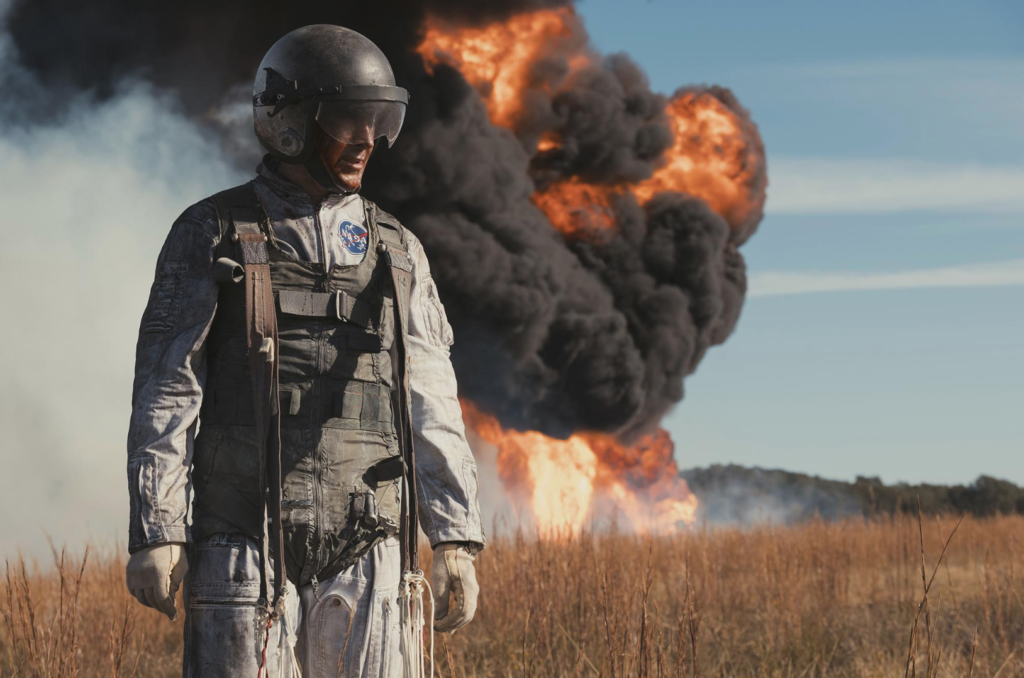
When you look up in the sky on a clear night, you’ll often see the moon perched above the skyline. It shines so bright that your eyes are naturally drawn to it. And it’s so easy to forget that we’ve been there. That a man has stepped foot on that distant rock. It’s easy to forget because it’s almost inconceivable. It’s all the way out there, in the dark midnight sky, and we’re here on this earth looking up at it. It seems so impossible, in fact, that fifty years later there are actually people who believe it was a hoax. I hope those people see First Man.
First Man is the story of Neil Armstrong’s journey to the moon. But as with the actual Apollo space missions, it’s about so much more than just that. The film itself chooses a specific point of view: An up close and personal portrayal of the first man on the moon. For such a big, widely-recorded piece of history, watching Neil and his colleagues work towards the ultimate achievement in the history of mankind actually felt very intimate. There are incredibly intense action sequences that pull you out of your body and into the bodies of the characters as they experience some of the most incredible things a human body can go through. It’s difficult to watch sometimes. And not just the flight scenes. Those, of course, are heart-pounding and visceral, and stay with you long after you leave the theater.
But the scenes at home with his family were sometimes just as difficult to watch. There’s this raw, unexplored emotional backdrop that sometimes seeps into the foreground. And in those moments, this is film can be absolutely heartbreaking. I’m not sure how faithful this was to real history, but you can sense that part of the reason Neil is so determined to explore the unknowns of space is because he’s unable to explore the depths of his own grief and personal struggles. It makes for compelling, dramatic, often very emotional stuff. And that combination of physical and emotional stress makes First Man feel so real. The way Mr. Chazelle presents this story to us is masterful. This is powerful storytelling. I had high expectations going into this film, and yet he still found a way to shock and delight.
How to watch: HBO (GO, NOW, On Demand)
3. Minding the Gap
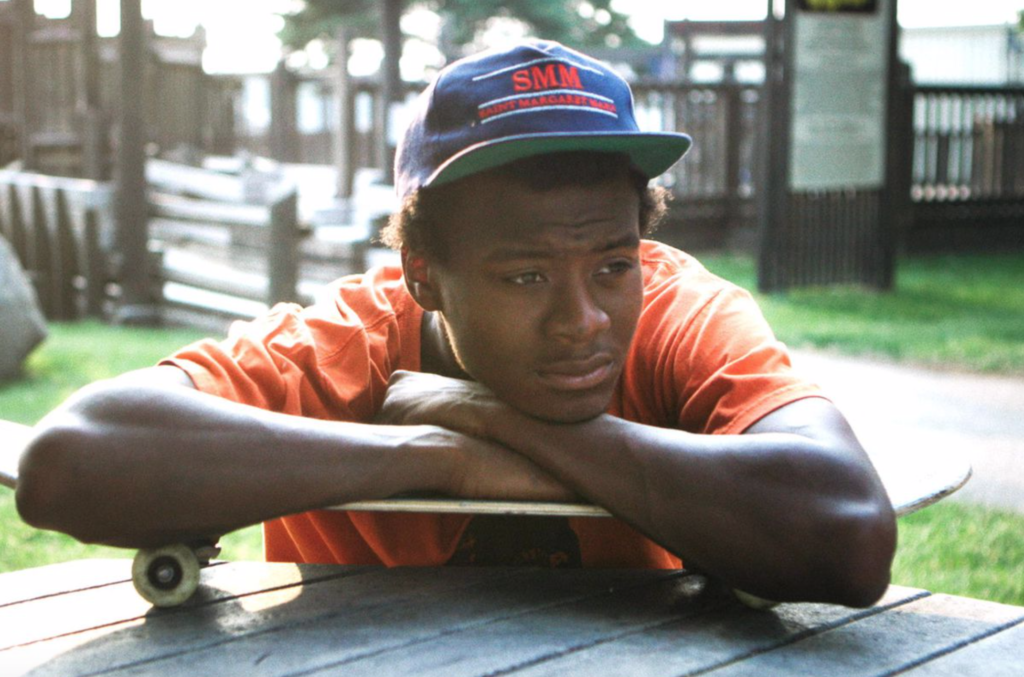
An inspiring and devastating documentary following a group of skater friends struggling to find a path from childhood to adulthood in a dying midwestern town. Devastating in the harsh realities these real life characters must confront about their difficult pasts. Inspiring in the sheer talent and vision of filmmaker Bing Liu, who has a remarkable ability to capture stories that at first seem so small and personal, but which end up being so grand and universal. I could provide more superlatives, but they would just be different ways to say the same thing: This is a great film.
How to watch: Hulu, PBS
2. A Star is Born
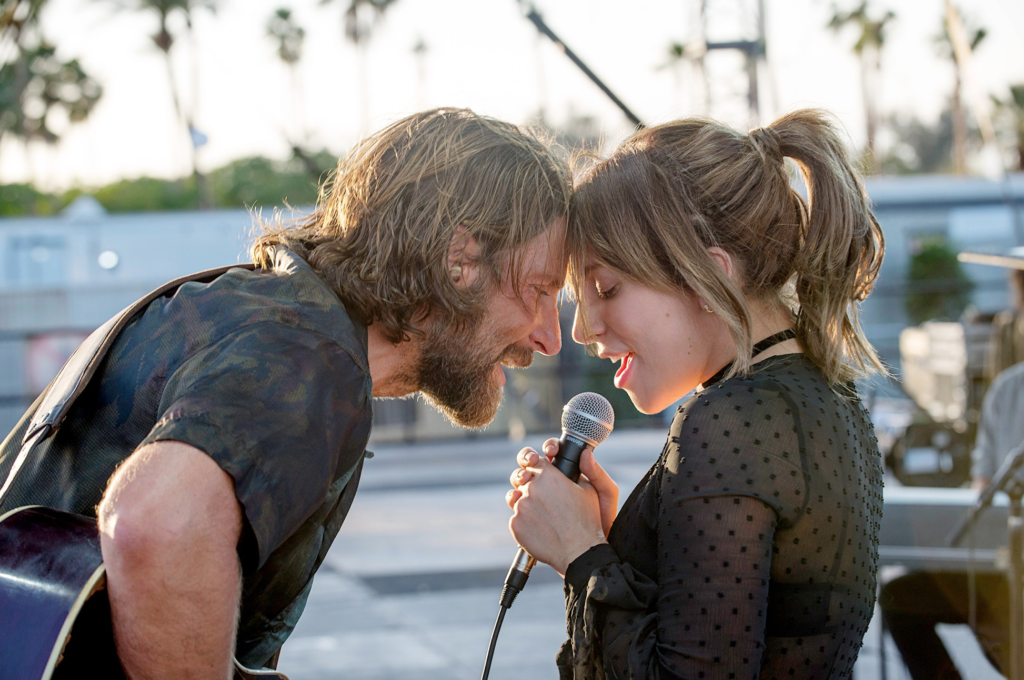
If you’ve seen his performance on Jimmy Fallon, you know that Bradley Cooper is an absolutely prodigious air guitarist. So it makes sense that he makes for a great rock star. I’ll be honest, I didn’t really WANT to like this movie. I am not a huge Gaga fan. Mind you, I don’t have anything against her. But I wasn’t really interested in her cross-over to acting. But I love watching this movie.
Maybe the thing that makes it so alluring is this dream of fame and fortune. Because this story – of a normal person being discovered and rising to stardom – is a “true” story. It does happen in real life (albeit pretty infrequently). Almost all famous people have humble, “ordinary” origins. Most of them got a lucky break or two. Watching this movie is a vicarious experience. We get to feel like we’re in Ally’s shoes. We get to feel like it would be possible for us to be discovered, and become rich and famous. It’s trickery, sure. But it’s a welcome trick. There was nothing surprising in this movie. By its nature, we can easily surmise what will happen. And yet it manages to captivate us anyway, in spite of the obviousness and unoriginality of its plot. That’s what makes this movie so good. We know what’s happening to us, and we don’t even care, because it’s fun to watch someone’s rise to glory.
It’s hard to judge how good this movie actually is, because it’s very easy to be sucked under its spell – its promise of bright lights and glory, and a dream come true. There are hundreds of movies out there like A Star is Born. It’s a time worn story. But this particular iteration just manages to pull it off better than most, I think. Some would say there are no new stories to be told. If we’re accepting that as fact, all we have left to judge is execution. And in that regard, Bradley Cooper delivered.
How to watch: HBO (GO, NOW, On Demand)
1. Roma
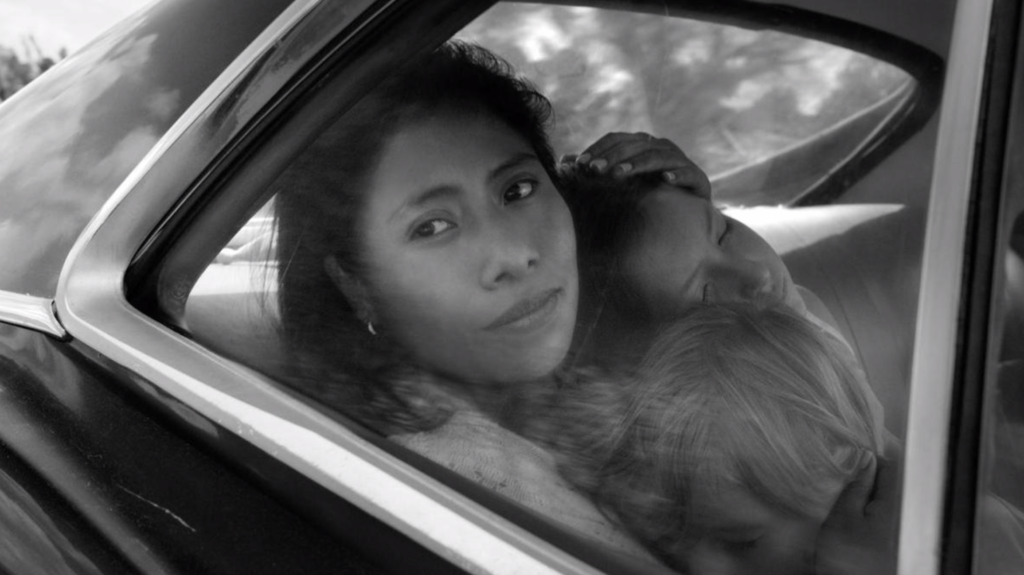
I tend to think a lot about what I think about movies. Or of music, or TV, or books. I have this impulse to categorize my enjoyment of a piece of art. To compare it to other things I’ve seen, and rate and rank it alongside other similar pieces of art. This can often be very enjoyable. It forces me to evaluate what I find important. But sometimes there’s a problem with this methodology. It can distract from my experience of the movie itself. It can force me to make a hard decision about something in a short amount of time, and sometimes there are pieces of art that demand more from us than a quick assessment.
How do I compare Roma to anything else I’ve watched recently? Well, I’m not sure I can. I’m not sure I should. That’s not to say that it should be treated as perfect, without reproach. Nothing is perfect. When it comes to art, the value is within each individual experience. Roma provides a specific vision, based on one man’s individual experiences in 1970’s Mexico City. And through his story (which is actually a story based on his childhood nanny), I am forced to put myself completely in his hands. It’s a setting that is physically, culturally, and psychologically different from my own. I have no other way to view this film but from the perspective that the filmmaker gives me. It’s a vulnerable position to be in for both the viewer and the filmmaker. But Cuaron’s vision is so fully realized that the barriers that can sometimes prevent emotional connection completely fall away.
For most of the film, you’re stuck on the outside of these characters. The cinematography is breathtaking. Every frame of the movie is stunning. And that can sometimes even be a hindrance. It distracts from what’s actually happening in the story. You feel almost overwhelmed by the artistry itself, and tend to forget that there’s an actual plot, there are actual stakes, there’s character development, and all the other things that movies need in order to work. But the final act of this movie tears that detachment off, exposing us to the raw, emotional core of the story. It’s deftly, masterfully done. The movie I thought I was watching at the beginning suddenly transformed into something much more gripping and soul-baring. There’s one specific moment, even, that I could feel this warmth come over me as I suddenly understood what Cuaron was wanting to show us. And it’s so beautiful, and powerful. It gives us a new understanding of what a film can do – all the humanity it can show us.
I watched Roma in the theater the night it came out. And it was a bit overwhelming after the first viewing. I knew that I’d seen a masterpiece. But just because it’s a masterpiece doesn’t mean it is “good.” Don’t worry, I’ll tell you what I mean. Something can be artistically and creatively impressive without establishing the proper emotional connection with those who interact with it. Roma clearly has the highest degree of technical and artistic mastery. But did I like it as a movie? Did the story draw me in and show me something I’d never seen? Basically: Was I entertained? Did I actually like it?
After that first viewing, the film weighed on my mind. I knew I had to watch it again. And it was the second viewing that really drove home how I felt about it as a movie.
I guess I should say that what I liked most about Roma was how real it felt. And I don’t necessarily mean that it looked and felt “realistic” (though it certainly did). I mean it more in the sense of the human brain’s perception of memory and place. Sometimes the things that feel most real are the tiny, seemingly banal moments in life that for whatever reason stick out years later as you reflect on your life. The sound of wet laundry dripping on the roof in the summer. The way your father has to squeeze an oversized car into the garage. The way airplanes fly overhead at the same time every day. Yes, even the way dog crap tends to pile up outside your house, never ceasing, always a nuisance that needs to be addressed. I most often equate these kinds of sensory moments with childhood. It’s the specific little things you remember but you don’t really know why. But when you really look back, and you can analyze yourself and see the whole picture, it makes more sense. It makes sense because that oversized car carried with it a certain presence beyond just physical. It makes sense because that dog shit had to get cleaned up somehow, by someone – and that someone’s importance and relevance to your life was comprised of a thousand tiny things that felt insignificant when isolated on their own, but when put together, were overwhelmingly central to your everyday reality. Roma is littered with these little moments. And when you look back on them, it reminds you of your own life. It reminds you of your own little specific banalities. It’s the banalities that sometimes define our sense of the world.
I’m reminded of a commencement speech that David Foster Wallace gave at Kenyon College in 2005. He begins the speech with a little parable:
“There are these two young fish swimming along, and they happen to meet an older fish swimming the other way, who nods at them and says, ‘Morning, boys, how’s the water?’ And the two young fish swim on for a bit, and then eventually one of them looks over at the other and goes, ‘What the hell is water?’”
At the end he sums up what he means: “None of this is about morality, or religion, or dogma, or big fancy questions of life after death. The capital-T Truth is about life before death. It is about making it to thirty, or maybe fifty, without wanting to shoot yourself in the head. It is about simple awareness – awareness of what is so real and essential, so hidden in plain sight all around us, that we have to keep reminding ourselves, over and over: ‘This is water, this is water.’”
Watching Roma is like inhabiting someone else’s memories. It’s about seeing the hidden meaning in the seemingly meaningless trivialities of life. The fact that it takes place in another place and setting that you’re not familiar with makes it feel exotic and new. But that allows us as viewers to reflect on our own lives. To re-evaluate the things that we’ve taken for granted. To explore ourselves in new ways. To find a new way of understanding who we are and how we became who we are. For Alfonso Cuaron, making Roma was a self-exploratory apparatus. For us, it’s watching it…and then doing what we need to do to discover ourselves on our own terms.